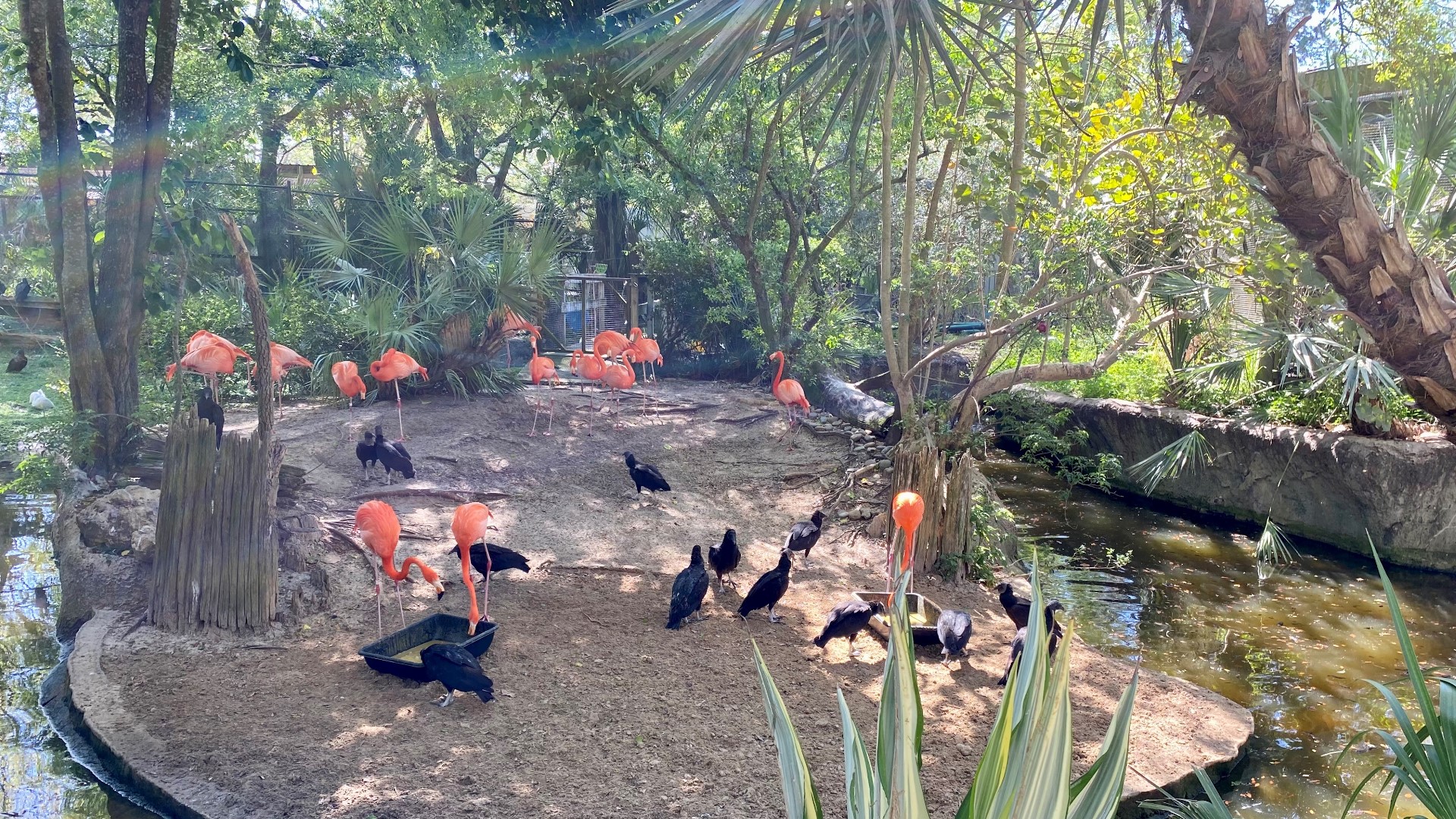TAMPA, Fla. — A deadly strain of avian influenza, or wild bird flu, has been making its way across the country, killing millions of birds.
Recently, that same virus was detected in the Tampa Bay area. As a result, local zoos and other groups are taking precautions to try to safeguard some of our feathered friends.
At ZooTampa at Lowry Park, visitors might notice signs letting them know some aviaries and bird exhibits are closed right now. It's a precaution against a deadly strain of avian influenza that’s killed millions of birds around the country.
“People aren’t getting sick from this virus which has been identified in several states in its wild bird population,” said Cynthia Stringfield, Sr. Director of Animal Health, Education and Conservation at ZooTampa. “However, with 319 birds representing 96 different species in our care, we have to implement all necessary safeguards to protect our flock.”
As soon as they heard about a confirmed case of bird flu in Hillsborough County, the zoo began a species-by-species assessment to determine which birds needed to be moved for safety and which ones could remain on display.
“The safety of our animals, many of which are species that are under threat of extinction, is our utmost priority and we have proactive plans in place for various scenarios,” Stringfield said. “Since some of our habitats provide natural protection from wild birds, these modifications affect less than 20% of our habitats.”
The city of Lakeland is also very concerned.
Unlike zoos, the city has no way of housing and safeguarding its iconic swans for very long, and the swans come in contact with wild birds every day.
So far, they say, they haven’t lost any — but they are worried.
As for your own pet birds or livestock? They’re also susceptible to the same avian flu. So, veterinarians suggest not bringing any new birds into your home, at least not right now.
And don’t allow your pet birds outside — even if they are securely caged ë without supervision. Owners, they say, need to watch their pets and be sure to keep wild birds and other animals away from them.
Right now, there is no known vaccine to help the birds fight off H5N1, so it’s especially important, say veterinarians, to protect our feathered friends.

